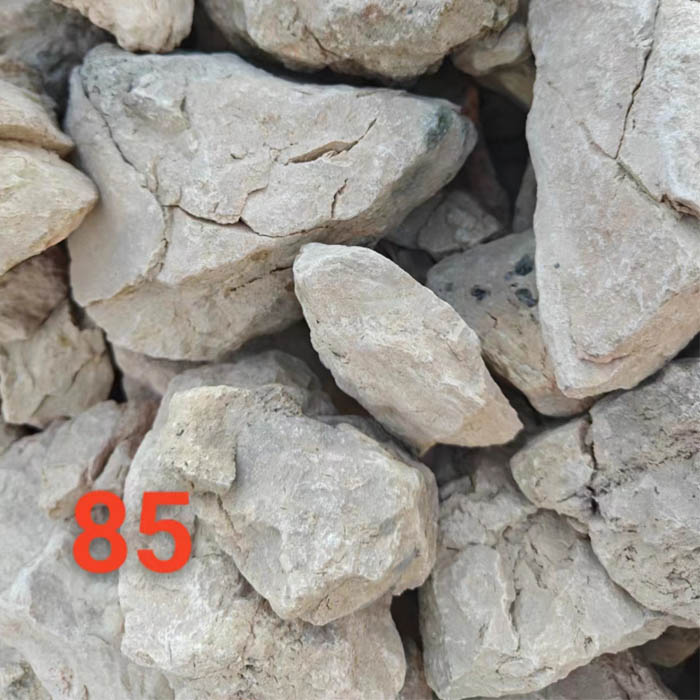Jul . 27, 2024 22:46 Back to list
High-Quality Recarburizers for Enhanced Carbon Levels in Steel and Foundry Industries
Understanding Recarburizer and Its Importance in the Steel Industry
In the world of metallurgy, the quality of steel significantly depends on the precise control of its chemical composition. One critical component in this process is carbon, which influences the hardness, strength, and ductility of steel. The introduction of carbon into molten iron or steel is achieved through the use of a recarburizer. This article delves into the role of recarburizer carbon manufacturers in the steel industry, the types of recarburizers available, and their significance in enhancing steel quality.
What is Recarburizer?
A recarburizer is a substance used to increase the carbon content in iron or steel during the smelting process. It is particularly essential in the production of high-quality steel grades where precise carbon levels are crucial. The addition of carbon not only improves the physical properties of steel but also enhances its machinability and wear resistance.
Types of Recarburizers
There are primarily two types of recarburizers used in the steel manufacturing process natural and artificial recarburizers.
1. Natural Recarburizers These are derived from natural materials and include sources like anthracite, charcoal, and petroleum coke. They are widely used due to their cost-effectiveness and availability. Natural recarburizers typically contain over 80% carbon content, making them suitable for various steel grades.
2. Artificial Recarburizers These are manufactured through industrial processes and include products like calcined petroleum coke and graphite. Artificial recarburizers often provide a higher and more consistent carbon content, making them preferable for producing high-performance steel grades. The purity of these materials ensures that impurities do not adversely affect the steel's properties.
recarburizer carbon manufacturers

The Role of Recarburizer Carbon Manufacturers
Recarburizer carbon manufacturers play a crucial role in supplying the steel industry with high-quality materials. The manufacturing process involves sourcing raw materials, processing them to achieve the desired purity, and then distributing the finished product to steel mills.
These manufacturers must adhere to stringent quality control measures to ensure that their products meet industry standards. This is vital because even trace amounts of impurities can significantly affect the final composition of steel. Manufacturers often conduct extensive testing and use advanced technologies to enhance the purity and performance of their recarburizers.
Importance in the Steel Industry
The addition of carbon through recarburizers is essential for producing various steel grades, each tailored for specific applications. For instance, high-carbon steels are commonly used in tools and machinery due to their hardness, while low-carbon steels are favored for their ductility and formability.
Moreover, the demand for robust and durable construction materials has led to an increased need for quality recarburizers. With the global push towards infrastructure development, the steel industry is expected to grow, thereby increasing the demand for effective recarburizers.
Conclusion
In summary, recarburizers are indispensable in the steel-making process, significantly influencing the quality and characteristics of the final product. The role of recarburizer carbon manufacturers is fundamental in providing high-quality materials that meet the needs of the steel industry. As technological advancements continue and the demand for high-performance steel rises, the importance of these manufacturers in ensuring the quality of steel production cannot be overstated. Their efforts contribute not only to the efficiency and reliability of steel manufacturing but also to the overall growth of the industry.
-
High-Quality Fe-C Alloy Leading Manufacturers & Spherical Alloy Materials Supplier
NewsJun.10,2025
-
Premium Low Nitrogen Recarburiser Supplier & Manufacturer – High Quality Exporters
NewsJun.10,2025
-
DT4 High-Quality Magnetic Materials Leading DT4 Manufacturer & Supplier
NewsJun.10,2025
-
High-Performance Spring Steel Suppliers Custom Solutions
NewsJun.10,2025
-
Premium SWRCH6A Manufacturer Steel Wire Supplier & Factory
NewsJun.10,2025
-
Premium Mild Steel Wire Rod Supplier & Manufacturer
NewsJun.10,2025
